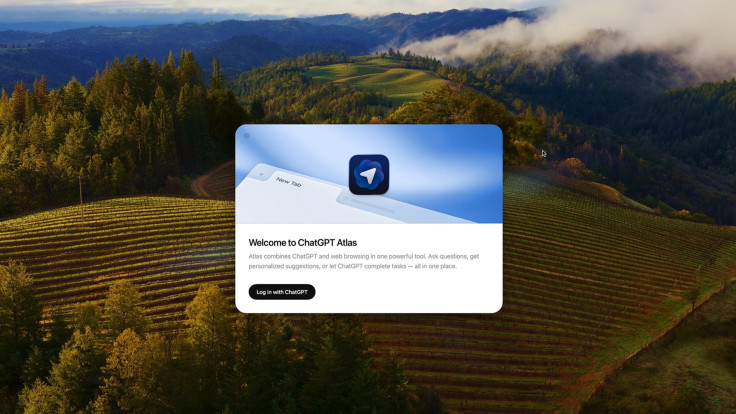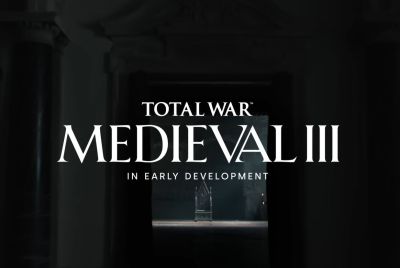ChatGPT Atlas 'Not 10x Better Than Chrome', Analyst Says — Browser Could Struggle to Win Over Chrome Users
Munster's analysis showed there is no '10x better' performance motivation to switch platforms

OpenAI's new ChatGPT Atlas browser is officially here, hoping to challenge Google Chrome's dominance by putting AI at the core of the web experience. However, not everyone is convinced it has the power to unseat the current champion.
One analyst suggests Atlas doesn't deliver a monumental improvement over Chrome, sparking doubts about its ability to convince millions of existing users to switch their primary web tool.
On Tuesday, the analyst Gene Munster shared his opinion on the release of OpenAI's ChatGPT Atlas, stating that while he thought it had potential, he warned that Google Chrome's position as the market leader was not under threat.
OpenAI's Atlas Browser Entry Heats Up Competition
OpenAI has formally introduced its new AI-driven web browser, ChatGPT Atlas, designed with its well-known chatbot at the core to take on Google Chrome.
Meet our new browser—ChatGPT Atlas.
— OpenAI (@OpenAI) October 21, 2025
Available today on macOS: https://t.co/UFKSQXvwHT pic.twitter.com/AakZyUk2BV
Users can now use the browser to generate summaries, conduct product comparisons, and perform data analysis. Those with a paid subscription can access 'agent mode' for automated tasks, such as planning vacations or making online purchases.
Munster, a managing partner at Deepwater Asset Management, offered his analysis of the launch, concluding that it was 'Good news for $GOOG. While the Atlas browser is a step forward, especially around agents, it's not 10x better than Chrome.'
Good news for $GOOG. While the Atlas browser is a step forward, especially around agents, it’s not 10x better than Chrome. Google can (and will) copy these features quickly, making it harder for Atlas to gain share.
— Gene Munster (@munster_gene) October 21, 2025
I’m a fan of what OpenAI is building and believe Google will be…
Munster continued by asserting that Google possesses the capability to 'copy these features quickly', making it hard for OpenAI's Atlas to acquire market share; nevertheless, he affirmed, 'I'm a fan of what OpenAI is building and believe Google will be fine.'
Before the release of the Atlas, Munster had already posed the question of why Google annually compensates Apple Inc. $20 billion (£14.95 billion) to remain the default search provider on Safari, justifying the expense by stating that 'the browser is the gateway to search'.
Wonder why $GOOG pays $AAPL $20B a year to be the default search engine in Safari? Because the browser is the gateway to search.
— Gene Munster (@munster_gene) October 21, 2025
GOOG is down 3.4% today (Nasdaq is flat) in anticipation of OpenAI’s browser announcement at 10 a.m. PT.
I’ll be most focused on distribution. If…
According to him, OpenAI's genuine challenge lies in successfully converting its 800 million weekly ChatGPT users into regular browser patrons, adding that 'If OpenAI can parlay its 800M weekly users into browser users, then Google will have its work cut out.'
Munster Predicts Google's Victory in the AI Race
Last year, Munster appeared on CNBC's Squawk Box to share his analysis of the AI arms race landscape and explain his belief that Google is positioned to emerge triumphant.
In a recent study, Deepwater evaluated prominent AI models — specifically Google's Gemini, OpenAI's ChatGPT, Anthropic's Claude, and X's Grok — by subjecting them to 40 identical questions; the resulting data, per Munster, indicated that the 'intelligence of these models... is comparable' with their performance varying by no more than approximately 4%.
Munster noted that this similarity is beneficial for Google, telling CNBC, 'If it's comparable to OpenAI and Claude, then the four billion daily search users aren't motivated to make that switch.' He contended that the absence of a significant performance difference means consumers will probably remain on the established, trusted platform.
Munster characterised Google's deeply ingrained user search habits as a strong defensive moat, confidently asserting that there is 'no need to worry' about the company's position, as 'That search piece is in a good place.'
Munster stressed that, despite comparable performance from rival AI platforms, they would find it difficult to disrupt Google's $185 billion search operation, clarifying that because the new products are not '10x better', there is 'no real motivation' for people to alter their established habitual search behaviour with Google.
OpenAI's Challenge Triggers Stock Dip as Chrome Fights Back
Despite the measured analyst commentary, the market's initial reaction was volatile, as Alphabet's stock (Class A and Class C) first dipped over 2% following the announcement before recovering nearly all those losses in after-hours trading, according to Benzinga Pro.
Current state of the market:
— The Kobeissi Letter (@KobeissiLetter) October 22, 2025
Google stock, $GOOGL, erased -$160 billion in 2 hours after OpenAI launched a web browser.
Then, it added +$180 billion back 4 hours later after everyone realized OpenAI's web browser is just Google Chrome with ChatGPT bolted on. pic.twitter.com/y9BmEQ5kvC
Atlas joins a growing and competitive field of AI-focused browsers, including Perplexity's Comet, Brave Browser, and Opera's Neon; however, this new competition has yet to dislodge Chrome, which still dominates the global market with a 71.77% share, according to Statcounter, especially as Google counters by integrating its own Gemini AI for features like AI summaries and chatbot-like responses.
Chrome's Defence: The Battle for User Habit
For now, Google's Chrome remains the dominant gatekeeper to the internet, shrugging off both new AI-centric rivals and the spectre of market share loss.
The true test for OpenAI's Atlas will be whether novel AI features can finally break the consumer inertia that has long defined the browser wars.
© Copyright IBTimes 2025. All rights reserved.






















